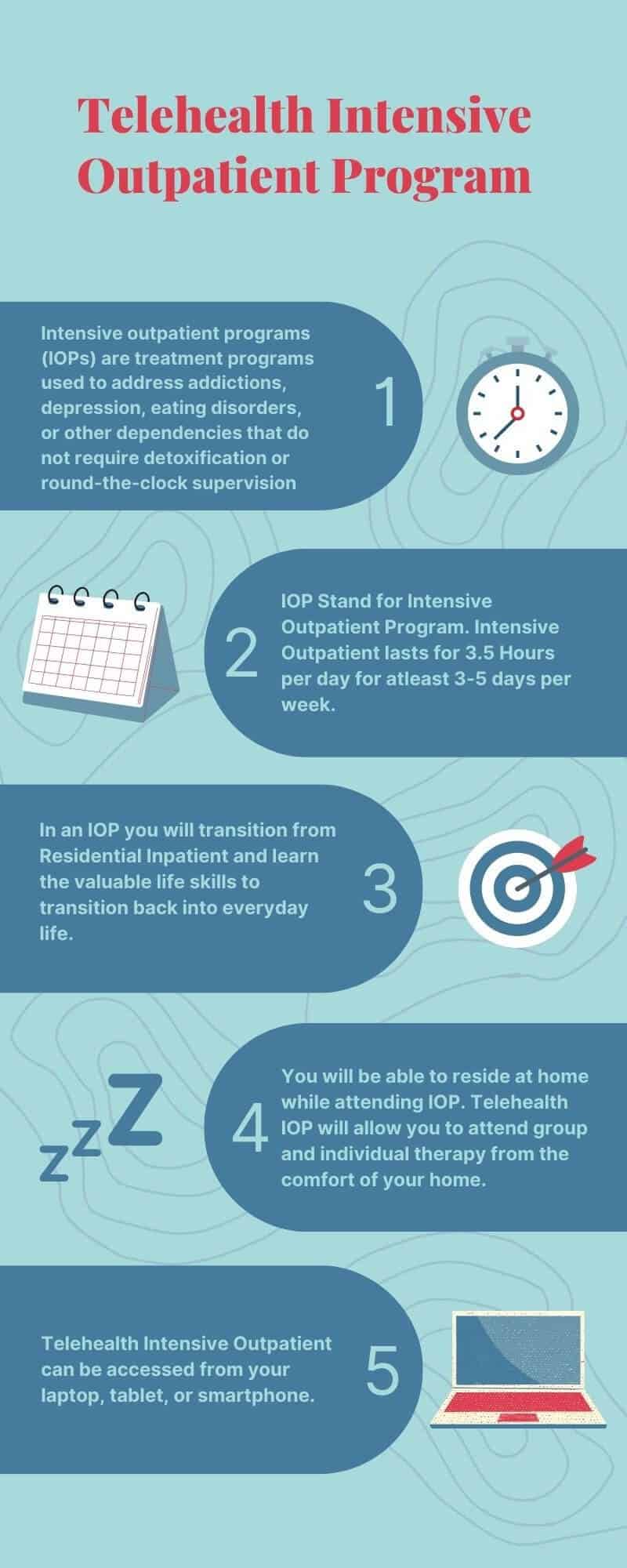Inexpensive and Effective Intensive Outpatient Program (IOP) Providers Near You.
Inexpensive and Effective Intensive Outpatient Program (IOP) Providers Near You.
Blog Article
Navigating the Intricacies of Dual Medical Diagnosis Therapy Within an Intensive Outpatient Program Setting
In the realm of mental health and wellness and dependency treatment, the crossway of dual diagnosis provides a nuanced challenge that demands an extensive and customized technique. By discovering the intricacies of dual medical diagnosis therapy within this extensive outpatient context, a clearer course arises towards all natural and sustainable healing for those grappling with these intertwined challenges.
Twin Medical Diagnosis Introduction

Understanding dual diagnosis is vital as it needs a detailed and incorporated technique to treatment. By recognizing the interaction between substance use and mental health, doctor can customize treatments to meet the special requirements of each person. This all natural approach not only addresses signs yet additionally targets underlying factors that add to the twin diagnosis.
Furthermore, unattended double medical diagnosis can cause a cycle of relapse and aggravating psychological health and wellness symptoms. By acknowledging the intricacy of twin diagnosis and giving specialized care, medical care specialists can sustain people in accomplishing long-lasting healing and enhanced psychological health.
Tailored Treatment Strategies
Recognizing the intricate interaction between material use problems and psychological health and wellness problems, the advancement of customized treatment plans is vital in resolving the complexities of double medical diagnosis in mental health and wellness therapy. Customized treatment plans are customized methods that think about the unique demands, challenges, and goals of people dealing with twin medical diagnosis. These plans are created collaboratively by a multidisciplinary group of professionals, consisting of psychoanalysts, psycho therapists, social employees, and addiction professionals, to make sure detailed and incorporated care.
Tailored therapy plans typically entail a combination of treatments, medications, and behavior treatments that target both the material use problem and the mental wellness problem at the same time. These strategies may include cognitive-behavioral treatment, dialectical habits therapy, medication-assisted therapy, private counseling, group therapy, and household treatment, to name a few evidence-based interventions. By tailoring treatment methods to individual circumstances, customized plans can deal with the root causes of double diagnosis, advertise long-lasting recovery, and improve overall top quality of life for individuals having a hard time with co-occurring disorders.
Integrated Care Technique
An incorporated treatment method in twin diagnosis therapy integrates medical, mental, and social interventions to deal with the intricate demands of individuals with co-occurring compound use conditions and psychological wellness conditions. This approach acknowledges that dealing with one aspect of a dual medical diagnosis without addressing the other can cause inadequate end results. By integrating medical treatments such as medicine management for mental health and wellness conditions with emotional therapies like cognitive-behavioral therapy for substance use problems, people receive comprehensive care that targets all facets of their double medical diagnosis.
By integrating social treatments like household treatment, vocational assistance, and neighborhood sources, the treatment comes to be a lot more all natural and customized to the person's certain requirements - Intensive Outpatient Program (IOP). In general, an integrated treatment approach in twin diagnosis therapy within an intensive outpatient program setting intends to supply comprehensive, efficient, and personalized care to people dealing with co-occurring disorders.
Difficulties in IOP Establishing
In the context of double medical diagnosis therapy within an extensive outpatient program, navigating the complexities of co-occurring compound use problems and psychological health conditions provides significant difficulties. One of the primary difficulties in the IOP setup is the control of treatment between psychological health experts and drug abuse specialists to ensure a detailed treatment approach. This needs effective interaction, collaboration, and a deep understanding of exactly how these conditions communicate and influence each other.

Moreover, dealing with preconception and resistance to therapy within the IOP setting can visit this web-site restrain progression. Some individuals might be reluctant to divulge their dual diagnosis or might feel ashamed, preventing their involvement in the restorative process. Overcoming these obstacles necessitates a helpful and non-judgmental atmosphere that fosters count on and visibility.

Collaborative Specialist Efforts
Reliable dual medical diagnosis treatment in an intensive outpatient program necessitates seamless cooperation among mental wellness experts and drug abuse specialists to make sure an extensive and incorporated strategy to care (Intensive Outpatient Program (IOP)). This collaboration is vital to attend to the intricate interaction between mental health and wellness conditions and compound misuse, as both facets require to be dealt with simultaneously for effective results. Mental health and wellness specialists bring proficiency in identifying and treating psychological health problems, while substance abuse professionals have specialized understanding in addressing addiction problems. By working with each other, these professionals can create customized treatment strategies that deal with the one-of-a-kind demands of each individual, taking into consideration both their mental wellness and chemical abuse difficulties.
Collective initiatives likewise reach regular communication and info sharing among employee to ensure a cohesive therapy method. This might include case meetings, joint sessions with the person, or click shared documentation to track progress and change therapy approaches as required. In addition, partnership might include entailing various other health care experts such as medical care medical professionals or family therapists to give holistic support to the person. Ultimately, a joined front of experts working together enhances the efficiency of double medical diagnosis therapy within an intensive outpatient program.
Conclusion
To conclude, reliable dual medical diagnosis treatment within an intensive outpatient program setup requires customized therapy strategies and an integrated care strategy. Obstacles may occur in this setting, but joint initiatives amongst professionals can aid navigate these intricacies. By attending to the one-of-a-kind demands of people with co-occurring psychological health and compound make use of disorders, IOP programs can supply extensive and alternative care to support healing and overall wellness.
Report this page